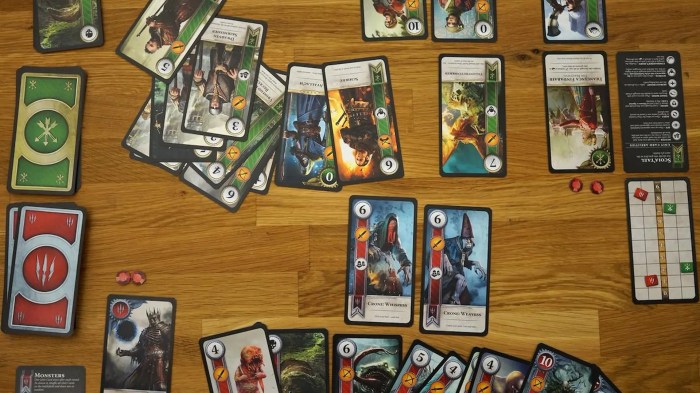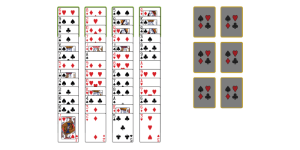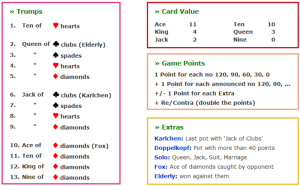
Delve into the realm of card game strategy with our comprehensive guide on mastering the art of gameplay. From understanding rules to resource management, this narrative promises to equip you with the necessary skills to elevate your game.
Uncover the secrets behind strategic gameplay and discover how observation and adaptation can be your keys to victory.
Tips for mastering card game strategy
Mastering card game strategy can be a challenging but rewarding endeavor. Whether you’re playing poker, Magic: The Gathering, or Hearthstone, understanding the intricacies of the game and developing a solid strategy is crucial for success. Here are some tips to help you improve your card game strategy:
Examples of popular card games where strategy plays a crucial role
Some popular card games where strategy is essential include:
- Poker: Requires a combination of skill, luck, and strategy to outwit opponents and win hands.
- Magic: The Gathering: Involves building decks, managing resources, and predicting opponents’ moves to secure victory.
- Hearthstone: Focuses on card synergies, mana management, and adapting strategies based on the cards drawn.
The importance of understanding the rules of the game before diving into strategy
Before formulating a winning strategy, it’s crucial to have a solid grasp of the game’s rules and mechanics. Knowing how the game is played, the value of different cards, and the win conditions will provide a strong foundation for developing effective strategies.
The significance of observing opponents’ moves to adapt your strategy accordingly
Observing your opponents’ moves and behaviors can give you valuable insights into their strategies and potential next moves. By paying attention to their plays, you can adjust your own strategy, anticipate their actions, and make informed decisions to gain an advantage in the game.
Share tips on managing resources effectively within the game
Effective resource management is key to success in card games. Whether it’s mana in Magic: The Gathering or chips in poker, managing your resources efficiently can make the difference between winning and losing. Prioritize your resources, plan ahead, and make strategic decisions to optimize your chances of victory.
Card Games interfere
Distractions and external factors can significantly impact a player’s focus during a card game, leading to poor decision-making and overall gameplay experience. Common examples include noise, visual distractions, interruptions, personal emotions, and external pressures.To minimize interference and maintain concentration while playing card games, players can implement the following strategies:
Minimizing Distractions
- Avoid playing in noisy or crowded environments to reduce auditory distractions.
- Turn off electronic devices or notifications to prevent visual distractions.
- Communicate with others to establish boundaries and minimize interruptions during gameplay.
- Practice relaxation techniques or mindfulness exercises to manage personal emotions and stress.
- Schedule dedicated time for playing card games without external pressures or time constraints.
The impact of interference on decision-making can result in missed opportunities, errors in judgment, and suboptimal gameplay. Maintaining focus and minimizing distractions are crucial for enhancing strategic thinking, analyzing game situations effectively, and making informed decisions. By implementing strategies to reduce interference, players can elevate their overall gameplay experience and increase their chances of success.
Card Games questionable
In card games, there are often situations where players may consider employing questionable tactics or moves to gain an advantage. These strategies can be risky but have the potential to pay off if executed correctly.
Impact of Questionable Strategies
Questionable strategies in card games can have a significant impact on the outcome of the game. They can catch opponents off guard, disrupt their plans, and create opportunities for the player employing such tactics.
- Bluffing: A common questionable strategy is bluffing, where a player pretends to have a stronger hand than they actually do. This can lead opponents to fold or make suboptimal decisions based on false information.
- Overcommitting: Another questionable move is overcommitting resources or cards to a single play, risking a lot on a potentially high reward. This can either pay off immensely or backfire disastrously.
Benefits of Taking Questionable Risks
While questionable strategies come with inherent risks, there are situations where taking such risks can be beneficial in card games.
- Psychological Advantage: Employing questionable tactics can put pressure on opponents, forcing them to second-guess their decisions and play more conservatively.
- Unexpected Wins: Sometimes, a bold move or a questionable play can catch opponents off guard, leading to unexpected victories that would not have been possible with conventional strategies.
Card Games plucky
Pluckiness or boldness in decision-making can significantly impact the outcome of card games. It involves taking calculated risks and making daring moves to outsmart opponents and secure victory. Finding the right balance between playing it safe and being bold is crucial in developing a successful card game strategy.
Effects of Plucky Approach
- Plucky players often catch their opponents off guard, leading to unexpected wins.
- Being bold can create opportunities to turn the tide of the game in your favor, even when the odds seem against you.
- Players who take risks and make daring plays are more likely to keep their opponents guessing, making it harder for them to predict their next move.
Examples of Plucky Moves
- Bluffing in poker by confidently raising the bet with a weak hand to intimidate opponents and make them fold.
- Going all-in in a high-stakes round of blackjack to push your luck and potentially double your winnings.
- Taking a calculated risk in a game of bridge by bidding aggressively to disrupt your opponents’ strategy and secure a favorable outcome.
Card Games fanatical
When it comes to mastering card games, some players exhibit fanatical dedication that drives them to continuously practice and improve their skills. This level of commitment can have a significant impact on skill development and overall success in the game.
Stories of Success
There are numerous stories of players who have achieved great success through their fanatical commitment to card games. These players often spend hours honing their strategies, analyzing game patterns, and participating in high-level competitions. Their dedication pays off as they consistently outperform their opponents and reach the pinnacle of success in the card game community.
Tips for Balancing Passion
- Set boundaries: While it’s important to be passionate about card games, it’s equally crucial to maintain a balance with other aspects of life. Set specific time limits for playing and practicing to ensure that your passion does not overshadow other responsibilities.
- Prioritize self-care: Remember to take breaks, eat well, exercise, and get enough rest. A healthy mind and body are essential for peak performance in card games.
- Diversify interests: Explore other hobbies and activities to prevent burnout and maintain a well-rounded lifestyle. Engaging in different pursuits can also provide new perspectives and insights that can benefit your card game strategies.
Card Games long

Playing long card games can be both rewarding and challenging. It requires a great deal of endurance and focus to maintain mental stamina throughout extended gaming sessions. Here are some strategies to help you stay engaged and motivated during long card games.
Advantages and Challenges
- Advantage: Long card games often involve complex strategies and deep thinking, providing a more immersive gaming experience.
- Challenge: The duration of these games can be mentally taxing, requiring players to stay focused for an extended period.
- Advantage: Longer games allow players to develop and execute more elaborate tactics, enhancing their strategic skills.
- Challenge: Fatigue and loss of concentration can set in during prolonged gameplay, affecting decision-making abilities.
Strategies for Maintaining Mental Stamina
- Take short breaks to rest your mind and regain focus.
- Stay hydrated and nourished to sustain your energy levels.
- Engage in light physical activity between rounds to refresh your mind.
- Practice deep breathing exercises to reduce stress and improve concentration.
Tips for Staying Engaged and Motivated
- Set achievable goals for each phase of the game to maintain a sense of progress.
- Stay positive and focus on enjoying the gameplay rather than solely on winning.
- Interact with other players to keep the atmosphere lively and engaging.
- Visualize your strategies and outcomes to stay motivated and committed to the game.
Card Games scrape
In the realm of card games, the term “scrape” refers to the practice of intentionally playing low-value cards in order to force opponents to play higher-value cards. This strategic move can deplete the opponent’s strong cards, leaving them vulnerable later in the game.Players can use scraping tactics to gain an advantage over opponents by carefully managing their card selection. By strategically playing weaker cards, they can manipulate the flow of the game and force opponents into unfavorable positions.
This can disrupt their strategy and give the player an edge in the overall gameplay.
Examples of scraping techniques in popular card games
- In the game of Poker, a player might strategically play low-ranking cards in the initial rounds to deceive opponents about the strength of their hand. This can lead opponents to make risky decisions based on false assumptions.
- In the game of Bridge, players may employ scraping tactics by playing low cards early on to draw out high cards from opponents. This can help in predicting the distribution of cards and gaining control over the game.
- Similarly, in the game of Hearts, players can use scraping techniques to force opponents to play high hearts early in the game, making it harder for them to avoid accumulating points later on.
Card Games cautious

When it comes to card games, being cautious can make a significant difference in your overall gameplay. It’s essential to understand the importance of cautious play to minimize risks and avoid unnecessary losses.
One of the key strategies for being cautious in card games is to carefully assess the situation before making any moves. By evaluating your hand, considering your opponents’ possible cards, and predicting potential outcomes, you can make more informed decisions that reduce the likelihood of negative consequences.
Strategies for Cautious Play
- Start by playing defensively and focusing on protecting your own assets rather than aggressively pursuing victory.
- Avoid making risky plays that heavily rely on luck or chance, as these can quickly turn against you and lead to significant losses.
- Keep track of the cards that have been played to gauge the probability of drawing certain cards in future rounds.
- Strategically conserve valuable resources or cards for crucial moments when they can have the most impact on the game.
Success Through Cautious Play
One example of how a cautious approach can lead to success in card games is in games like Poker, where bluffing is a common strategy. By playing cautiously and only bluffing when the odds are in your favor, you can deceive your opponents effectively and secure a winning hand.
Card Games pat
In card games, “pat” refers to a hand that is already complete and does not require any further cards to be drawn or played. Recognizing the value of a pat hand is crucial for making strategic decisions that can lead to victory.
Recognizing Pat Hands
In games like Poker or Rummy, recognizing when you have a pat hand can give you a significant advantage over your opponents. A pat hand usually consists of a strong combination of cards that can potentially win the game.
Capitalizing on Pat Hands
- Play defensively: Once you have a pat hand, focus on protecting it and preventing your opponents from improving their hands.
- Bluff strategically: Use your pat hand to your advantage by bluffing and misleading your opponents into making mistakes.
- Maximize value: Make the most out of your pat hand by carefully planning your moves to maximize your chances of winning.
Card Games muscle
When it comes to mastering card game strategy, mental muscle plays a crucial role in making informed decisions and staying ahead of the competition.
Importance of Mental Muscle
Having strong mental muscles allows players to think quickly, analyze situations effectively, and adapt their strategies based on the changing dynamics of the game. It helps in keeping a sharp focus, maintaining composure under pressure, and anticipating opponents’ moves.
- Practice mindfulness techniques such as deep breathing and visualization to enhance concentration and decision-making skills.
- Engage in mental exercises like solving puzzles or playing memory games to improve cognitive function and strategic thinking.
- Participate in regular practice sessions to build mental resilience and endurance for long gaming sessions.
Examples of Mental Muscle in Action
Players with strong mental muscles can outmaneuver their opponents by staying calm in high-pressure situations, quickly adapting to unexpected developments, and anticipating their opponents’ strategies.
By developing mental toughness, players can maintain a strategic edge even when faced with challenging scenarios, ultimately leading to better gameplay and more victories.
Card Games Monkey
In card games, the term “monkey” refers to unexpected or unpredictable factors that can significantly impact gameplay. These “monkey” elements can throw off a player’s strategy and require quick thinking and adaptability to overcome.
Dealing with “Monkey” Factors
When facing “monkey” factors in a card game, it is crucial to stay calm and focused. Here are some strategies for dealing with these unexpected elements:
- Stay Flexible: Be prepared to adjust your strategy on the fly to counteract any “monkey” moves by your opponents.
- Observe Closely: Pay attention to your opponents’ actions and try to anticipate any unexpected plays they might make.
- Control Emotions: Don’t let “monkey” factors frustrate you or throw you off your game. Stay composed and make rational decisions.
Adapting Strategy to “Monkey” Elements
Players can adapt their strategy to counteract “monkey” elements by:
- Playing Conservatively: If faced with unpredictable factors, it may be wise to play it safe and avoid taking unnecessary risks.
- Using Bluffing: Employ strategic bluffing to mislead opponents and create uncertainty, turning “monkey” factors in your favor.
- Quick Decision-Making: Be prepared to make quick decisions in response to unexpected moves, keeping the game dynamic and in your control.
Card Games ants
In card games, the concept of “ants” refers to paying attention to small details that can have a significant impact on strategy and gameplay. These small factors may seem insignificant at first glance but can make a big difference in determining the outcome of a game.
It is crucial for players to cultivate patience and sharpen their attention to detail when dealing with “ants” in card games. By focusing on these subtle elements, players can improve their decision-making process and increase their chances of success.
Significance of “Ants” in Card Games
When it comes to card games, overlooking small details can cost you the game. Here are some tips to help you address the significance of paying attention to “ants” in card game strategy:
- Observe your opponent’s movements and reactions closely to gather information.
- Keep track of the cards played and assess the probability of certain cards appearing.
- Consider the timing of your plays and anticipate potential moves from your opponents.
- Practice patience and avoid rushing decisions, especially when faced with uncertainty.
- Stay focused and avoid distractions that may cause you to miss important details.
Card Games discreet
Playing card games requires a level of discretion to prevent opponents from reading your strategy. Being discreet can give players a significant advantage by keeping their intentions hidden and maintaining a poker face throughout the game.
Importance of Discretion in Card Games
- Discreet gameplay can prevent opponents from predicting your moves and adapting their strategy accordingly.
- Keeping a poker face can make it challenging for others to gauge the strength of your hand, leading them to make mistakes in judgment.
- By hiding your intentions and maintaining a sense of mystery, you can control the flow of the game and influence other players’ decisions.
Strategies for Maintaining Discretion
- Avoid showing any visible signs of excitement or disappointment when receiving a good or bad hand.
- Practice maintaining a neutral facial expression and body language throughout the game to avoid giving away clues about your hand.
- Control your breathing and heart rate to prevent physiological responses that could betray your emotions.
Advantages of Being Discreet in Card Games
- Players who are discreet can bluff more effectively, keeping their opponents guessing and making bold moves.
- Being discreet can create a sense of unpredictability, making it harder for opponents to read your strategy and counter your moves.
- By mastering the art of discretion, players can manipulate the perceptions of others at the table, gaining a psychological edge in the game.
As you navigate the complexities of card game strategy, remember that success lies in a balance of boldness and caution. With these tips at your disposal, you’re ready to conquer the world of card games with confidence and skill.
Expert Answers
What are some popular card games where strategy is crucial?
Some popular card games that require strategic thinking are Poker, Bridge, and Magic: The Gathering.
How can I minimize distractions during a card game?
To minimize distractions, find a quiet playing environment, turn off electronic devices, and focus on the game at hand.
When should I take questionable risks in card games?
Taking questionable risks can be beneficial when you’re in a losing position and need a bold move to turn the game around.





